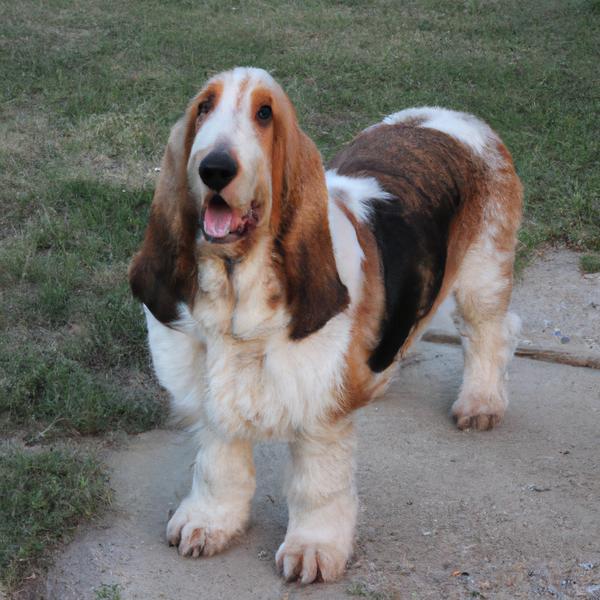Boxita vs. Bassetoodle: Breed Differences and Similarities
Hypoallergenic
Are Boxitas or Bassetoodles hypoallergenic, or neither?
Unfortunately, neither Boxita nor Bassetoodle are hypoallergenic, which may not make them the best choice for dog lovers who suffer from pet allergies.
Temperament
What are the personalities of Boxita and Bassetoodle dogs?
Playful
Dignified
Independent
Energetic
Protective
Alert
Courageous
Intelligent
Confident
Friendly
Responsive
Docile
Loyal
Fearless
Faithful
Brave
Bright
Vigilant
Willing
Active
Alert
Intelligent
Friendly
Affectionate
Devoted
Gentle
Tempered
Sweet
Tenacious
Trainable
Faithful
Instinctual
Shedding Level
Do Boxitas shed more than Bassetoodles, or which breed sheds more, Boxitas or Bassetoodles?
Boxitas are heavy shedders, but regular brushing can help manage shedding and promote a healthy coat.
Bassetoodles are low shedding dogs, requiring minimal coat care.
Watchdog Ability
Which dog breed makes a better watchdog, the Boxita or Bassetoodle?
Avoid Boxitas as watchdogs - they're not effective.
Bassetoodles aren't great guard dogs; they tend to just watch without taking action.
Origin
What is the origin of Boxita and Bassetoodle dog breeds?
United States
United States
Ancestry
What are the origins of Boxita and Bassetoodle breeds?
Akita and Boxer
Poodle and Basset Hound
Date of Birth
When were Boxita and Bassetoodle breeds first developed?
Unknown
2000s
Litter Size
What is the usual litter size for Boxita and Bassetoodle?
A Boxita can have a litter of 3-12 puppies on average. However, it's worth noting that the size of the litters can vary greatly. Factors that can influence litter size include the health of the mother, breeding history, and genetics.
A Bassetoodle can have a litter of 6-8 puppies on average. However, it's worth noting that the size of the litters can vary greatly. Factors that can influence litter size include the health of the mother, breeding history, and genetics.
Adaptability
Boxita and Bassetoodles are known for their adaptability and versatility. They are capable of adapting well to a wide range of lifestyle changes and living environments, making them great companions for families and individuals of all lifestyles.
Health Issues
Between Boxita and Bassetoodle, which breed is more prone to health problems?
Boxita and Bassetoodle breeds are generally considered to be healthy. However, like all breeds, they are susceptible to certain health issues and it is important to keep an eye out for them and address them with your veterinarian as needed.
Major Concerns
What are the major health concerns for Boxita and Bassetoodle breeds?
Entropion
Ectropion
Cardiomyopathy
Hip Dysplasia
Subvalvular Aortic Stenosis
Degenerative Myelopathy
Corneal Dystrophy
Elbow Dysplasia
Hip Dysplasia
Epilepsy
Bloat
Obesity
Minor Concerns
What minor health issues should be kept in mind when owning Boxita and Bassetoodle?
Progressive Retinal Atrophy
Cataracts
Atopic Dermatitis
Cherry Eye
Cataracts
Allergies
Diabetes
Occasional Tests
What occasional tests are recommended for Boxita and Bassetoodle breeds?
Eye
Hip
Heart
Skin Scraping
X-Rays
Physical Examination
Respiratory Tests
Hip
Elbow
Blood Test
Physical Examination
Allergy Tests
Energy
How do the energy levels of Boxitas and Bassetoodles compare?
For those who lead a balanced lifestyle, Boxita and Bassetoodle breeds may be a good choice as they have an average energy level.
Social Needs
Boxita vs Bassetoodle social needs comparison
Boxita and Bassetoodle have above average social needs compared to other breeds. They thrive in environments where they have a lot of interaction with humans and other dogs.
Exercise Needed
Boxita vs Bassetoodle exercise need comparison.
Boxitas require minimal physical activity for a healthy lifestyle.
Bassetoodles need moderate physical activity and are great for families and active individuals.
Sleeping Need
Which of the two sleeps the most/least: Boxita or Bassetoodle?
Boxitas sleep less than other breeds but still need adequate sleep for good health.
Bassetoodles have moderate energy levels and typical sleep patterns of 12-14 hours per day.
Tendency to Bark
Do Boxitas or Bassetoodles bark more/less frequently?
Boxita and Bassetoodles are known to bark very little or not at all. They tend to be very quiet and do not bark excessively. They may only bark in specific situations, such as when they need to alert their owner to something important or when they are in distress.
Mouthiness
Mouthiness Comparison: Boxita vs Bassetoodle?
Roaming urge
Boxita vs Labrador: Running away tendency?
Prey Drive
Boxita or Bassetoodle - which breed has a higher level of prey drive?
Tolerance of being left alone
Grooming
Which breed is easier to maintain in terms of grooming, Boxitas or Bassetoodles?
The Boxita has low grooming needs and is easy to maintain.
Bassetoodles require significant grooming, including regular trims and professional grooming assistance to maintain their coat. They may also require frequent bathing to keep their coat and skin healthy.
Intelligence
Comparing Intelligence: Boxitas vs Bassetoodles
Boxita and Bassetoodle have average obedience intelligence, but they're also independent thinkers. This breed is known for having an exceptionally high IQ, which means they may get into trouble if left to their own devices.
Sensitivity Level
How do Boxita and Bassetoodle compare in sensitivity?
This breed is sensitive to its environment and best suited for patient and understanding families with a consistent routine.
This breed is sensitive and requires gentle handling and a calm home environment.
Affection Dependance
Which is the more affectionate dog breed: Boxita vs Bassetoodle?
Apartment Friendly
Which breed is more apartment-friendly: Boxita or Bassetoodle?
Boxitas make excellent apartment dogs, being fairly active indoors and not requiring a yard.
Bassetoodles are good apartment dogs as long as they get enough exercise and stimulation outside of the apartment.
Child Friendly
Do Boxitas or Bassetoodles have a friendlier temperament towards children?
Boxitas are good with kids if socialized and trained from a young age.
Bassetoodles make excellent family pets for kids due to their gentle, protective nature and calm temperament.
Senior-friendly
Which dog is more suitable as a pet for the elderly - Boxita or Bassetoodle?
Cat Friendly
Do Boxita or Bassetoodle breeds have a better compatibility with cats?
Boxitas are average in their friendliness toward cats and tend to do well with them, especially if raised together.
Bassetoodles are very friendly with cats and make great companions for them.
Dog Friendly
Which breed is more sociable with other dogs: Boxita or Bassetoodle?
Boxitas are average in their friendliness towards other dogs, and socialization can help.
Bassetoodles are generally very friendly towards other dogs, with a happy and affectionate temperament.
Pet friendly
How do Boxita or Bassetoodle dogs interact with other pets?
Stranger Friendly
Which breed is more friendly with strangers: Boxita or Bassetoodle?
Boxitas are averagely friendly around strangers but benefit from early socialisation.
Bassetoodles are highly friendly around strangers.
Playfulness
Which breed is more playful between Boxita and Bassetoodle?
Boxitas are a playful breed that needs daily playtime to be happy.
Bassetoodles have an average level of playfulness, enjoying playtime like most dogs but not excessively so.
Trainability
How do the trainability levels of Boxitas and Bassetoodles compare?
Boxita and Bassetoodle dogs are known for their ease of training and ability to learn quickly, making them a popular choice for pet owners and trainers alike.
Compare Boxita with other breeds
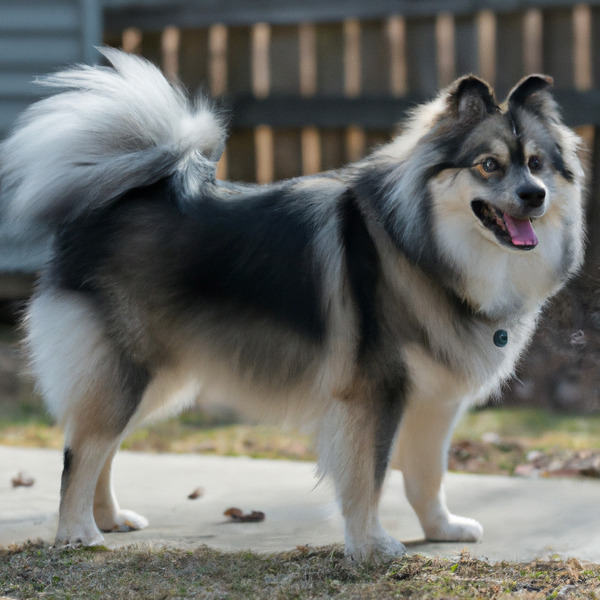
Pomsky
Boxita vs Pomsky

Jack-Rat Terrier
Boxita vs Jack-Rat Terrier
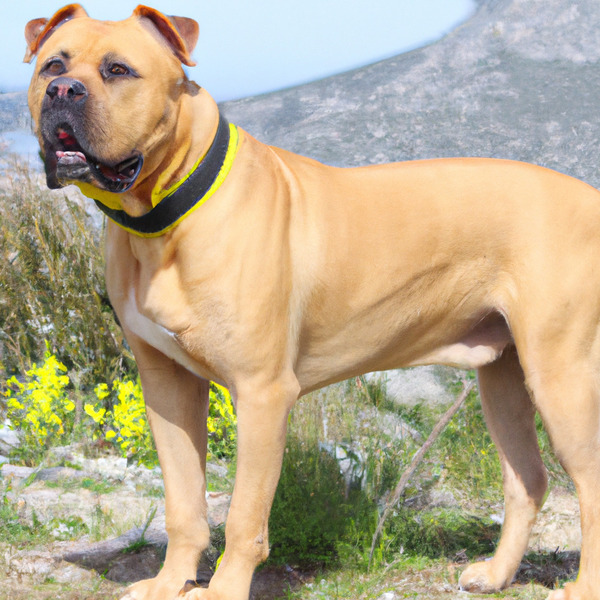
Perro De Presa Canario
Boxita vs Perro De Presa Canario

Bull Terrier
Boxita vs Bull Terrier

Skip-Shzu
Boxita vs Skip-Shzu

English Bulldog Terrier
Boxita vs English Bulldog Terrier

Norwich Terrier
Boxita vs Norwich Terrier

Silky Cairn
Boxita vs Silky Cairn
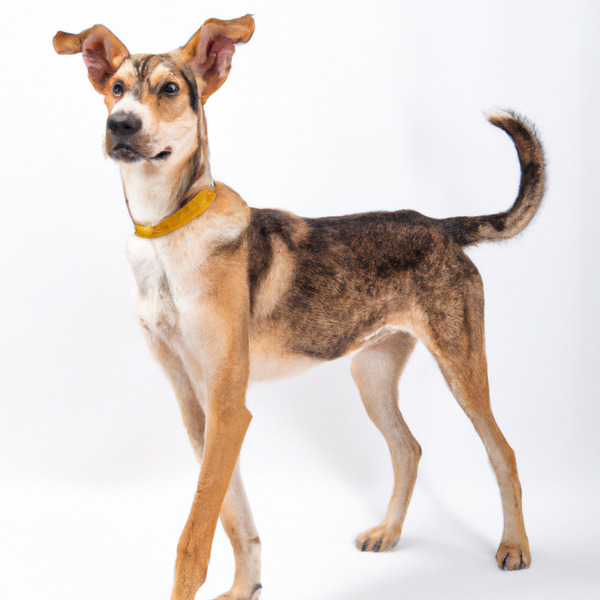
Afador
Boxita vs Afador

Cluminger Spaniel
Boxita vs Cluminger Spaniel
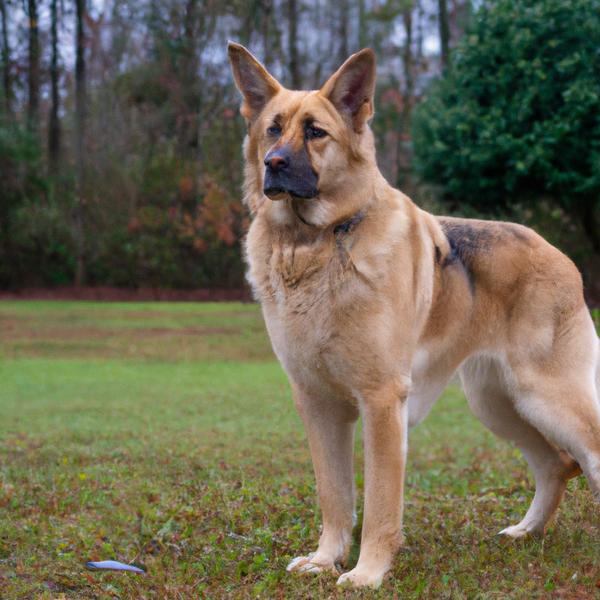
Golden Shepherd
Boxita vs Golden Shepherd
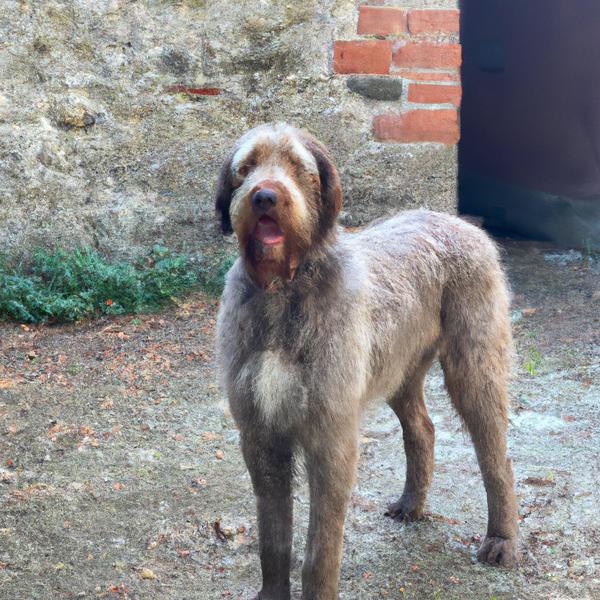
Spinone Italiano
Boxita vs Spinone Italiano

